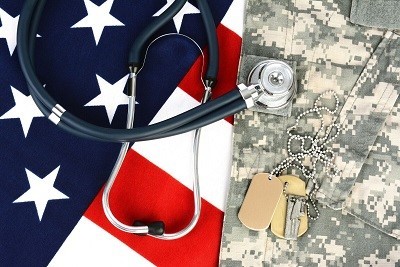NSU Newsroom
SharkBytes
Horizons
This version of NSU News has been archived as of February 28, 2019. To search through archived articles, visit nova.edu/search. To access the new version of NSU News, visit news.nova.edu.
This version of SharkBytes has been archived as of February 28, 2019. To search through archived articles, visit nova.edu/search. To access the new version of SharkBytes, visit sharkbytes.nova.edu.
NSU Research Spotlight: NSU Scientists Study Disease that Impacts Hundreds of Thousands of Gulf War Veterans
 As we recognize and honor our veterans for their service, we must also remember that many veterans are ill from exposure to unexplained pesticides, radiation or other toxins during their time in the service.
As we recognize and honor our veterans for their service, we must also remember that many veterans are ill from exposure to unexplained pesticides, radiation or other toxins during their time in the service.
Approximately a quarter of the 700,000 soldiers who fought in the 1991 Gulf War suffer from a debilitating disease called Gulf War illness (GWI).
GWI is a medical condition that affects both men and women and is associated with symptoms including fatigue, chronic headaches, memory problems, muscle and joint pain, gastrointestinal issues, neurological problems, respiratory symptoms, hormonal imbalance and immune dysfunction.
Researchers at NSU are conducting multiple studies to learn more about and ultimately help veterans facing GWI. Two NSU research teams recently received grants from the U.S. Army Medical Research Acquisition Activity totaling $1,830,389 to fund three studies.
- Improving Diagnostics and Treatments for GWI Females by Accounting for the Effects of PTSD1 – $655,822 (Travis Craddock, Ph.D., principal investigator)
- Disentangling the Effects of PTSD from GWI for Improved Diagnostics and Treatments2 – $592,825 (Travis Craddock, Ph.D., principal investigator)
- Persistently Elevated Somatic Mutation as a Biomarker of Clinically Relevant Exposures in Gulf War Illness3 – $581,742 (Stephen Grant, Ph.D., principal investigator)
The first two, three-year studies are aimed at identifying subgroups of GWI based on the presence or absence of posttraumatic stress disorder (PTSD) resulting from time on the battlefield in both men and women. Dr. Craddock and his research team will perform a systems biology analysis to isolate biobehavioral profiles that identify the effects of PTSD in GWI to improve diagnostic criteria and to assess potential treatment avenues for GWI in the context of probable PTSD diagnosis.
GWI is at least in part caused by illness-specific inflammatory activity. The extent and nature of the resulting inflammation may be altered in people who also experience PTSD, leading to a shift in treatment targets/strategies for each subtype. Specifically, Dr. Craddock’s team aims to understand the role of systemic inflammatory mechanisms in GWI in the presence and absence of probable PTSD diagnosis as this is critical to define subtypes of GWI, and for the development of subtype-specific treatments.
To read more, click here.